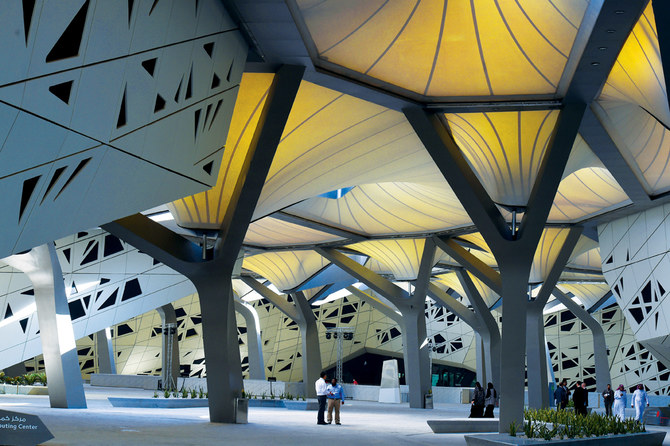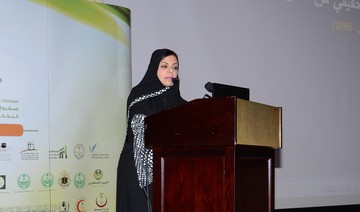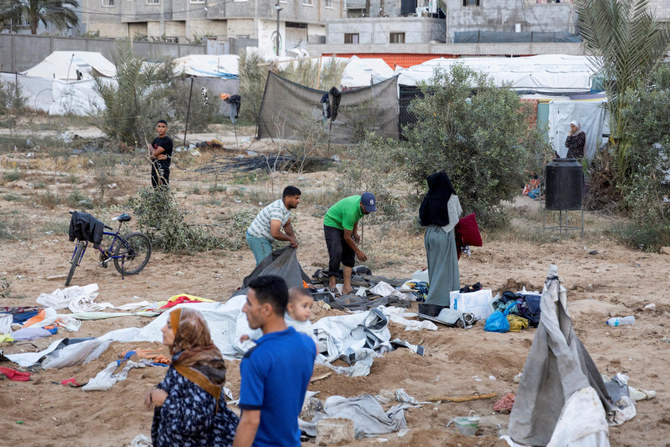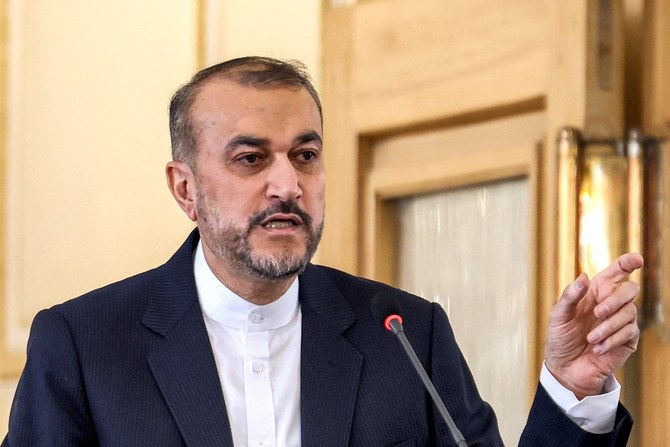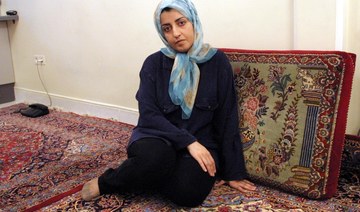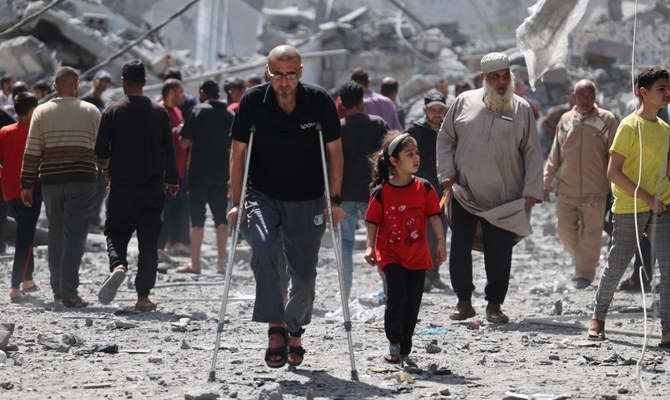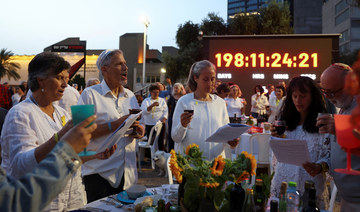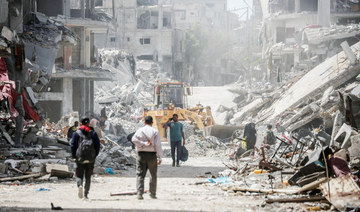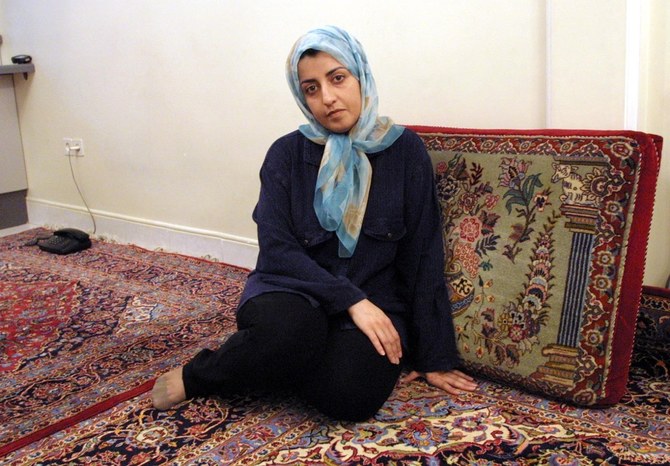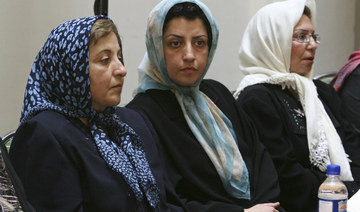DUBAI: The member states of the Gulf Cooperation Council (GCC) are increasingly moving toward becoming knowledge-based economies, a new report says — with an important caveat.
Despite recent progress, the volume of research publications remains low compared with non-GCC countries, and is a long way behind more established knowledge economies, according to the report by Pricewaterhouse-Coopers (PwC).
The survey’s findings and discussions with the region’s research universities, have helped PwC to identify key challenges confronting the GCC research ecosystem.
These include attracting and retaining post-graduate and post-doctoral students; applying successfully for competitive funding; getting on board new researchers; mentoring and training of new researchers; and administrative support, such as grant application writing.
“GCC countries are very well aware about the issue (of poor volume of research),” said Sally Jeffery, global education network leader at PwC.
“When we speak to ministries and universities, there’s a common understanding of the issues they face, and they recognize the importance and urgency of it,” she said.

Developing quality education, and introducing training for the local labor force are examples of initiatives that are expected to generate the PhDs of tomorrow. (Shutterstock)
“What’s needed today is to move beyond the planning and start implementing. They can figure out the governance issues through piloting.”
To succeed in overcoming the problems, the report says, GCC governments will need to develop a clear national research agenda, establish supportive legal frameworks, distribute research funding effectively, incentivize academic and industry collaboration, and empower institutions and individuals. Universities also need to invest more in their research facilities.
“You’ve got to create those communities to support researchers on a day-to-day basis, for example how to apply for a grant, how to find the best supervisor, how to collaborate internationally,” Jeffery said.
“It takes a broad range of skills to be a successful researcher … Some of the best universities are the ones that support researchers with the administrative and knowledge management challenges that they face, in addition to academic and scientific support.”
In a major move, Saudi Arabia is setting up a research development office, and is encouraging collaborations and joint teams between international researchers and Saudi researchers.
“They’re providing funding competitively, encouraging researchers to collaborate more with them, and the impact of that is much more powerful,” said Jeffery.
“You’ve got to make funding available and provide support for those researchers to be successful.”
The PwC report found, on the basis of 2018 data, that Saudi Arabia, the UAE and Qatar account for the bulk of GCC academic research, and that the largest proportion originated from Saudi universities, with 23,448 publications.
In terms of population size, Qatar was found to be performing well regionally, with a ratio of 1.6 publications to every 1,000 inhabitants. In the UAE, seven universities dominated the country’s research output. “The current gap between the GCC countries and more mature countries comes as no surprise, but it’s expected to be bridged during the decades to come,” said Anthony Hobeika, CEO of MENA Research Partners.
“It’s only recently that regional governments started implementing their long-term transformational visions, where education is a key component on the agendas,” he added.
“Developing quality education, boosting private-sector participation, introducing training for the local labor force — these are a few examples of initiatives that are expected to generate the PhDs of tomorrow, and hence a wave of research publications.”
Hobeika expects Saudi Arabia to keep attracting large numbers of researchers, given the size of its population and economy.
The PwC report says GCC governments are taking action to increase the number of post-doctoral researchers and PhD students, but they have a long way to go.
In Saudi Arabia, for instance, the number of PhD students per 1,000 inhabitants is 0.34, compared with 2.69 for the UK. “It’s not easy given the global competition for research talent. The region’s top researchers are easily tempted to work in other countries where the ecosystem is more mature and they stand a greater chance of making an impact more quickly,” Jeffery said.
That being said, some Gulf public intellectuals believe it is not the number of publications that matters, but the quality. One of them is Dr. Sabah Binali, CEO of Universal Strategy. “When looking at the figures, the actual usefulness of the data provided in terms of understanding where GCC countries stand in research is almost meaningless,” he said.
“Simply put, 1,000 publications that don’t lead to actual market innovation add nothing to the local economy. But a single publication that leads to market innovation can add great value to a country’s economy.”
Binali said it is not vital for the GCC to improve its research, as it is one link in a long chain of economic value addition.
INNUMBER
34 - PhD students per 100,000 inhabitants in Saudi Arabia.
“The research needs to lead to product or service innovation. This then has to be marketed to clients, and so on. A simple example is Amazon, one of the largest companies in the world by market capitalization, which wasn’t built on research but on customer service experience.”
“What’s missing in the GCC is an entrepreneurial environment where monopolies are dissolved and it’s OK to make mistakes. The most celebrated companies, such as Careem and Souq, are all about entrepreneurship.”
Jeffery says research is one of the key drivers of a knowledge economy due to its capacity for creating more jobs in the region.
“If you look at the amount of goods we import in the region, we need to create a stronger manufacturing sector, more jobs and reduce dependency on oil revenues. One of the biggest benefits of a serious R&D (research and development) capability is jobs and economic growth,” she said.
“Large industry players often choose to commission research from outside the region, so you need to encourage the faculty that you’ve got to work more closely with industry and convince them to spend more money here.”



